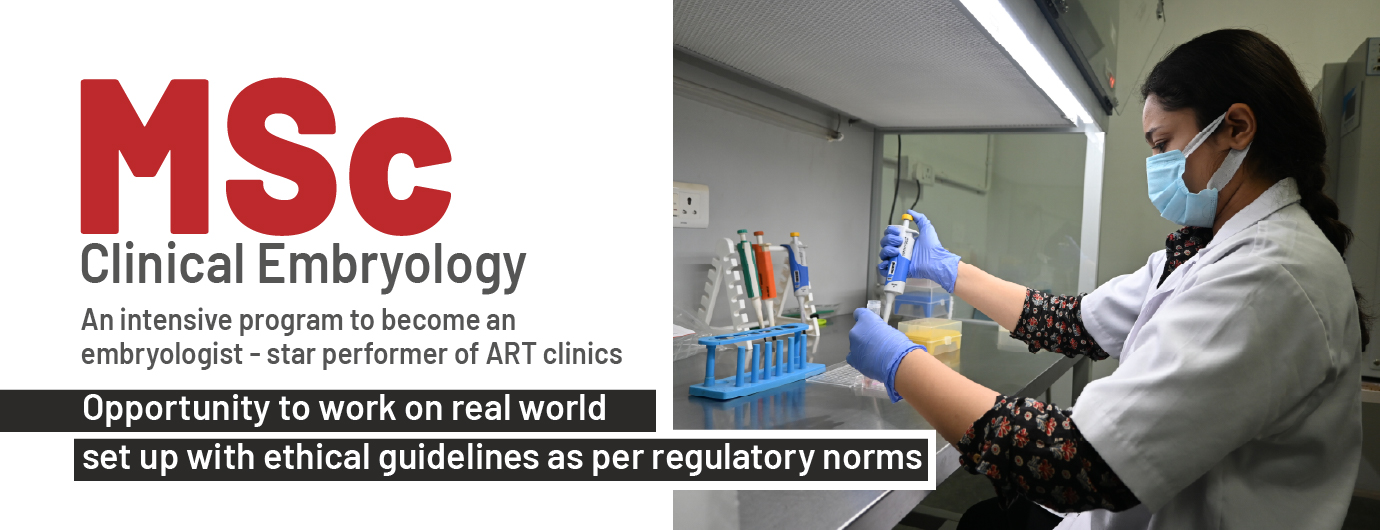The master’s degree program is divided into a mandatory course and University elective area. Apart from the core papers, six months dissertation as a master’s project is compulsory. In addition, you must choose university electives from a specified catalogue. The elective area serves to acquire additional technical, interdisciplinary, and professional skills. Elective modules can be chosen from the entire range of Courses offered across NUV.
The Master of Science (MSc) in Clinical Embryology is designed to equip students with a profound understanding of the fundamental principles and practical applications within the field. Rooted in a multidisciplinary approach, the curriculum is meticulously structured to seamlessly integrate theoretical knowledge with hands-on experience, thereby preparing graduates for diverse career trajectories in academia, clinical practice, and research.
The core courses form the bedrock of the program, providing students with a solid grounding in essential such as Foundations of Human anatomy and physiology, Cell Biology, Molecular Biology, Genetics, Genomics, Biochemistry, and Research Methodology. These foundational courses lay the groundwork for a deeper exploration of specialized tracks, allowing students to tailor their academic journey based on individual interests and career aspirations.
The program places a strong emphasis on practical training and research, offering laboratory rotations and opportunities to engage in research projects in collaboration with faculty or clinical partners.
A series of seminars on innovative and advance topics in clinical embryology provides students with exposure to the latest developments in the field. The capstone experience involves presenting research findings in a public forum, showcasing the culmination of a student’s academic journey.
The culmination of the MSc in Life Science is marked by the successful completion and defence of a thesis, where students conduct independent research, demonstrating their ability to contribute meaningfully to the advancement of knowledge in the field. Graduates emerge from the program with a solid foundation in the field.
An embryologist can be employed as a junior or senior embryologist in an ART clinic. Embryologists work with fertility experts to assist patients in improving their reproductive health and perform clinical research. They can also conduct academic research and provide counselling to patients. With more experience and taking up additional responsibilities, you can attain the position of a Lab Manager in the IVF clinic. However, basic embryology training opens a myriad of opportunities. Stem cell therapy, Tissue Engineering, Reproductive Genetics, Cryo-Biology are few of the disciplines where an embryologist’s skill is needed.



